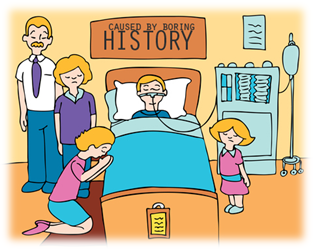
When a person dies in a movie, you have this chilling moment where the eyes gloss over and lose their shimmer. I get to experience this chilling moment almost daily when I tell people what I study.
Now you might be wondering: “What is this girl studying that is considered THAT boring?” Well here it goes. I am currently a student of Ancient Cultures of the Mediterranean World. This involves ancient Egypt, Mesopotamia, Israel, Greece and Rome. This study is quite popular with an older generation, but for the so-called millennials this could sound like the worst. And I have to partially agree with them. In this first blog post I will describe some of the things that ensure the quietness in the field.
The first thing that comes to mind when people think of studying an old culture is the dusty library. Books are of utmost importance, since people in this field usually pride themselves in being computer-illiterate. In Leiden, the study has its own dusty library, which is considered the ultimate paradise. To make it even better, a lot of people don’t know where it is because it is not easy to find. To make matters even ‘worse’, you have to actually search for your information. A lot of things are not a simple Google-search away. The older generation is used to this, so they are content with this. The younger generations are not easily drawn to the field this way. Everything has to be a click away to be worth the find. Sometimes a person gets lucky and it is a click away, but the website is in German or French. The system is developed in such a way that you have to be crazy and/or passionate (basically the same) to go through the trouble of finding things. So the study remains small and outsiders remain outsiders.

Another thing that makes the study dusty, is the fact that you have to learn an ancient language. I can hear you thinking: “Well, Latin and Greek are fine languages”. But those aren’t the languages we can choose from. Hieroglyphics, cuneiform and Biblical Hebrew are the options. A language cannot get any more ‘dead’ so to speak. The books and tools to learn those languages are also written in languages that are ‘unwanted’ by Dutch Student, such as German and French. I once had a course where I learned Phoenician, a subgroup of Hebrew. In the handbook used to decipher the texts, the Phoenician alphabet was changed to Hebrew and the explanation going with it was German. So you were interacting with three types of languages (I am bad with all three of them) and also reading in two different directions (Hebrew is written from right to left).
And as the big finale: “But what can you do with it?” This is literally the most asked question when I tell people what I study. It is a fact that I cannot directly apply my studies. The stuff I find fascinating is at least 2000 years old. In this current society there is no real need for someone to know a lot about Tyrian purple (it actually is very interesting, but also very old). My sisters boyfriend once even said to me that I was being educated for an unemployed life. This is a shallow opinion, studying ancient cultures actually gives you a particular skillset. The people who devote their time to it are patient and hardworking. They know that results are the fruits of their endless labour and searching.
In this blog I want to open people’s eyes in showing them that old cultures are more than just a bunch of books that are hidden in a dusty library. How to have fun with ancient cultures by means of memes, games, documentaries (that often make no sense) and movies (often ridiculous).


Really interesting!! Can’t wait for your other blogs!